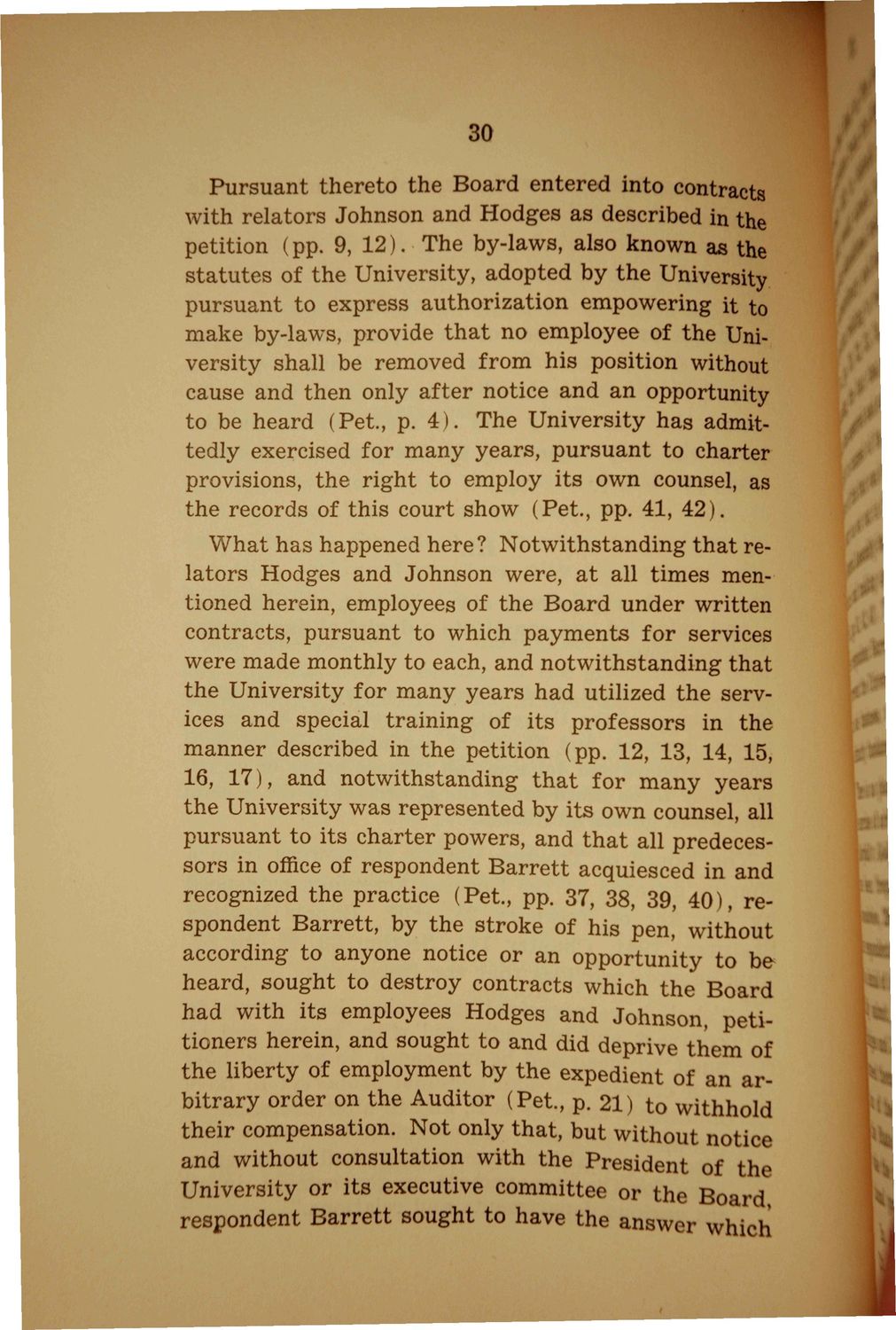| |
| |
Caption: Booklet - UI Charter of Freedom (1942)
This is a reduced-resolution page image for fast online browsing.

EXTRACTED TEXT FROM PAGE:
30 Pursuant thereto the Board entered into contracts with relators Johnson and Hodges as described in the petition (pp. 9, 12). The by-laws, also known as the statutes of the University, adopted by the University pursuant to express authorization empowering it to make by-laws, provide that no employee of the University shall be removed from his position without cause and then only after notice and an opportunity to be heard (Pet., p. 4). The University has admittedly exercised for many years, pursuant to charter provisions, the right to employ its own counsel, as the records of this court show (Pet., pp. 41, 42). What has happened here? Notwithstanding that relators Hodges and Johnson were, at all times mentioned herein, employees of the Board under written contracts, pursuant to which payments for services were made monthly to each, and notwithstanding that the University for many years had utilized the services and special training of its professors in the manner described in the petition (pp. 12, 13, 14, 15, 16, 17), and notwithstanding that for many years the University was represented by its own counsel, all pursuant to its charter powers, and that all predecessors in office of respondent Barrett acquiesced in and recognized the practice (Pet., pp. 37, 38, 39, 40), respondent Barrett, by the stroke of his pen, without according to anyone notice or an opportunity to be heard, sought to destroy contracts which the Board had with its employees Hodges and Johnson, petitioners herein, and sought to and did deprive them of the liberty of employment by the expedient of an arbitrary order on the Auditor (Pet., p. 21) to withhold their compensation. Not only that, but without notice and without consultation with the President of the University or its executive committee or the Board respondent Barrett sought to have the answer which *
| |